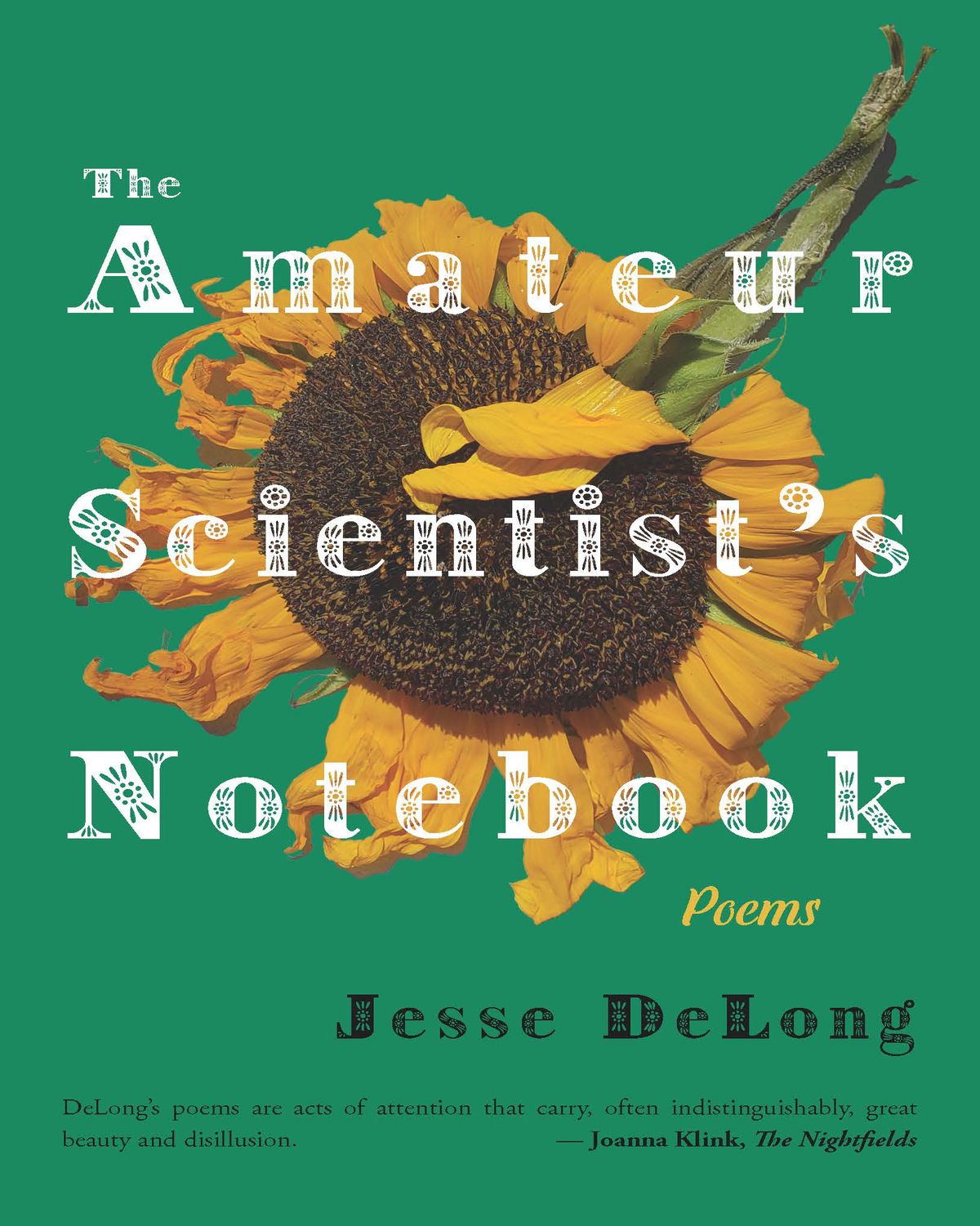Locally Writ: Jesse DeLong’s ‘The Amateur Scientist’s Notebook’ explores North Idaho farmlands, mines

Growing up in Cocolalla, Idaho, poet Jesse DeLong remembers afternoons spent writing short stories with an elementary school friend and reading as many books as he could get his hands on.
He continued to write through his teen years, but it wasn’t until he started taking creative writing classes at the University of Montana that he decided to follow his passion seriously.
In DeLong’s debut full-length collection, “The Amateur Scientist’s Notebook,” the natural world jumps off each page as he explores the North Idaho mines and farmlands of his childhood.
In “Florets,” the first piece in the collection, DeLong writes: “The struggle of scale begins / in a sunflower. Floret: sharp of petals, stem-bright, // it starts – to fill air, to feed earth, to forge, / from root to flower, // the color & coarseness of its borders while around sprouts / the collage of a larger order …”
DeLong will give a virtual reading from “The Amateur Scientist’s Notebook” with Nathaniel Popkin for the Small Press Reading Series by Hidden Timber Books at 5:30 p.m. Thursday and another with Diamond Forde for the Midtown Reader at 4 p.m. May 6.
After two semesters of Zoom, DeLong is eagerly anticipating a return to in-person classes at Louisiana State University where he teaches composition and literature.
“It’s so much harder to make any sort of connection with the students online or over Zoom,” he said. “I’m really looking forward to being face to face with them.”
Especially now, DeLong said, that is, after the last four years, he’ll be returning to work with a new enthusiasm for creativity.
“I think, like a lot of people, I had trouble producing new work during the Trump administration,” he said. “It was such a sort of depressing time, which is why I’ve spent a lot of time just editing and revising.”
DeLong prefers to write in the early morning with a cup of coffee nearby. But he saves editing for later in the day.
It can be difficult to know when a piece is finished, but often all it takes is a bit of time and distance before revisiting to recognize a completed work, he said.
“There’s not really a scientific or factual process to this,” he said. “But if you come back to it, and you still feel like it’s finished, that’s when I think it’s done.”
To aspiring poets, DeLong offered the following advice.
First, read widely – both traditional and contemporary works. Second, know that you have to put in the work to succeed.
“Working through your writing and reshaping it into something you think is good takes a lot of devotion and a lot of time,” he said.
“It’s not going to come to you in a fit of inspiration in the middle of the night.”
“The Amateur Scientist’s Notebook” is available at Auntie’s Bookstore and online through Wishing Tree Books.